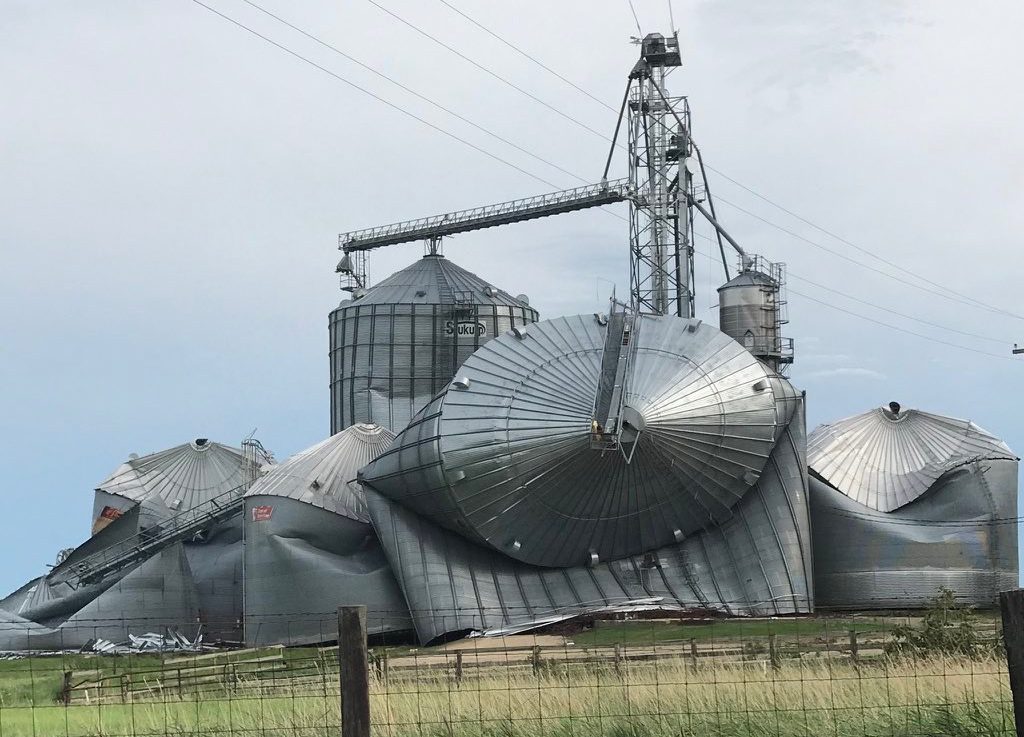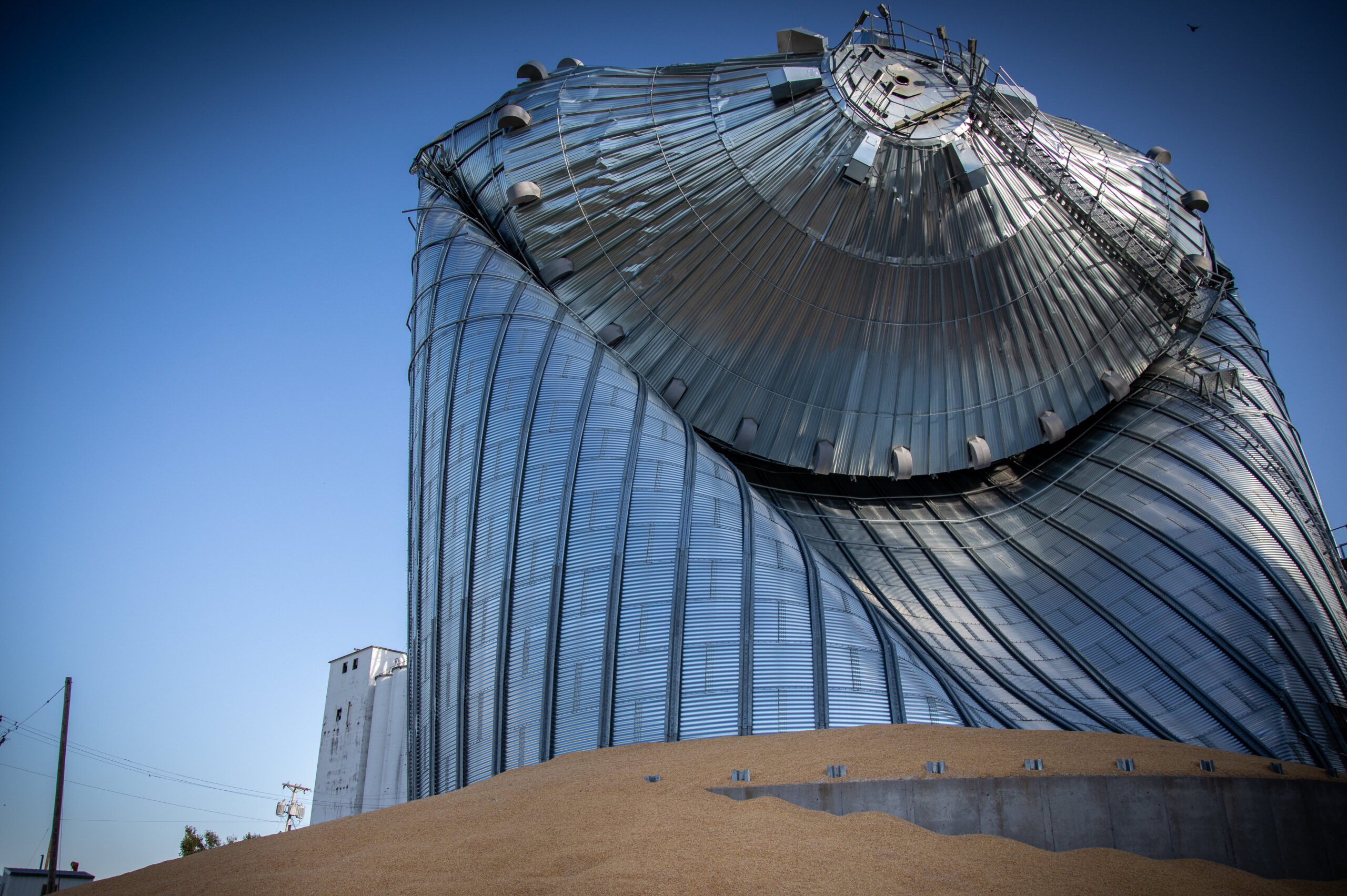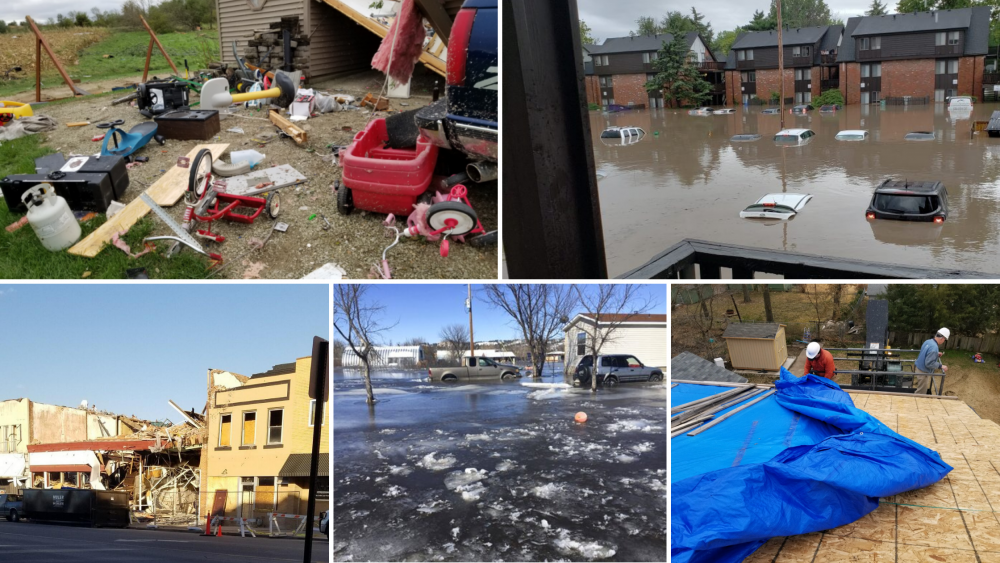Paying Attention
In the Midwest, we know severe storms. Lost homes, shingles, siding damage and crop loss are “normal.” We know ice storms and blizzards that bring snapped trees and lost electricity; these happen somewhat regularly. And we know flooding – the devastating impacts on individuals and families who must rebuild everything. We are learning, as is […]

In the Midwest, we know severe storms. Lost homes, shingles, siding damage and crop loss are “normal.” We know ice storms and blizzards that bring snapped trees and lost electricity; these happen somewhat regularly. And we know flooding – the devastating impacts on individuals and families who must rebuild everything.
We are learning, as is the rest of the world, about pandemics and social distancing and the cascading implications on every aspect of life. Over the week of Aug. 10, 2020, we learned again about derechos, massive storms that experts have compared to inland hurricanes. But unlike hurricanes, a derecho gives little to no warning – no time to board up windows or make sure you have batteries, shelf-stable food and fuel. It’s a storm with hurricane-force winds in a place where the infrastructure isn’t built for hurricane-force winds. A storm that left families without food, water, electricity, cell phones and safe shelter. A storm that destroyed apartment buildings, schools, busses and homes.
At first, it seemed no one paid attention. The typical disaster relief and response appeared slow. Maybe that’s because it happened in Iowa, a state that is mostly unnoticed by the rest of the country except every four years during the presidential primaries. Or maybe it is because it happened at the same time as other significant news events – a vice presidential running mate announcement and the ever top-of-mind pandemic. Or maybe it was because cell service and internet made it nearly impossible to get the word out beyond immediate neighborhoods. Or perhaps it was because the initial reports were about crop loss and wind damage, and we all immediately think, “they have insurance.” Maybe it’s because we are tired of scrambling to meet the seemingly never-ending needs of 2020.
As I reflect, it seems to me that it is a combination of all these things. I didn’t really pay attention until I saw the headline: “It’s Worse than you think in Cedar Rapids, ” and it’s my job to pay attention to natural disasters in the Midwest. Some attention came to Iowa on Friday, four days after the derecho, and the overwhelming nature of what had happened shocked many and spurred action.
But the attention only lasts so long; unless it was your home and community, you’ve probably moved on. Now you are thinking about wildfires in California, hurricanes in the Gulf, a presidential election and civil unrest.
Why should we pay attention to what happened in Iowa?
- If it can happen in Iowa, it can happen anywhere. We need to stop conjecturing about how we might respond to one disaster in the midst of another and revisit our plans and policies to make them more flexible and responsive to multiple, simultaneous events.
- The derecho revealed an additional layer of reality and complexity around vulnerability. It’s another layer of grief and loss, and a sign of a potential mental health needs for individuals and households already struggling to feel safe and secure and to meet basic needs of food, water and shelter. Refugees and immigrants lack access to culturally appropriate information and services. Marginalized individuals get pushed further back as those with voice, power and resources move to the front of the line.
- It revealed, again, that substandard and low-wage earner housing is a pre- and post-disaster crisis that needs our attention. It’s time to start looking at post-disaster housing recovery in terms of ethics and equity. It’s time to do the hard work of developing policies that ensure stable, resilient housing options for all.
- Recovery takes a long time and a lot of resources, but this one and the others that will, unfortunately, occur across our country during this pandemic, will take longer and require more creativity, resourcefulness and community-level commitment than a disaster of the same scope and scale pre-pandemic.
- Finally, pay attention to Iowa because you can do something to help. Whatever your interest, passion or mission, there is most likely a need in Iowa – and any disaster – where your enthusiasm, expertise or money can meet a need. There are needs in education, transportation, housing, childcare, new American populations, agriculture and fundraising, to name a few. And, if nothing else, you can help by making sure that Iowa continues to get the attention they need to recover.
For the Midwest Early Recovery Fund team, paying attention looks like assessing needs, implementing our tested process of providing capacity building funding to local organizations so that they can continue to support emerging on-the-ground challenges and supporting the convening of other funders to work collaboratively on recovery.
There is a strange opportunity here. “Normal” left us several months ago and we don’t know when it will come back. Amid layers of uncertainty, we can step forward and re-imagine what it looks like to pay attention.
For more information about the 2020 Midwest Derecho, visit our Disaster Profile.
More like this

Paying attention: What happened after the costliest thunderstorm in US history?

